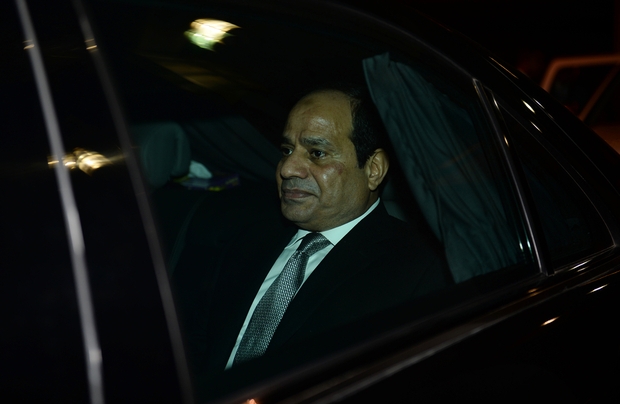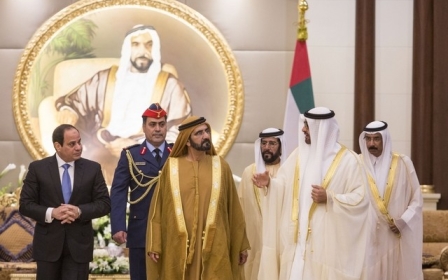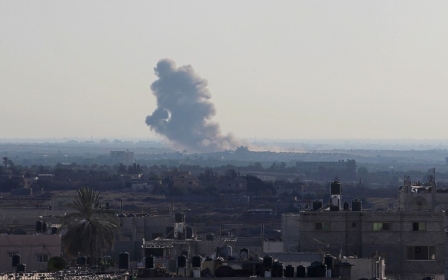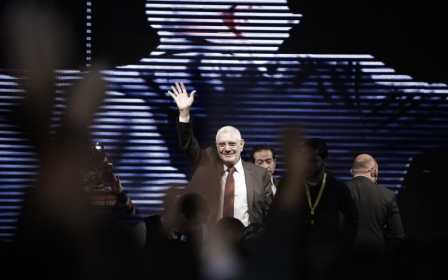Egypt falling apart

When Russian authorities confirmed that the plane crash in Sharm el Sheikh that killed over 220 passengers was caused by a bomb, the Egyptian authorities responded with a long silence and no comment. Perhaps the silence was no surprise. Embarrassingly, Egyptian authorities have been kept out of the loop of intelligence details being shared between Washington, London and Moscow.
On the same night Russia announced the confirmation, it sent security experts to examine ways of securing its embassy, as obviously Egypt has lost trust on the security front. Security procedures in Sharm el Sheikh airport came under a great deal of scrutiny from security officials of foreign countries and the international media. The findings were appalling. Security personnel in the airport were reported to be playing “Candy Crush”, sleeping on duty and taking money in return for having passengers avoid security queues.
Domestic failure reflected abroad
In Egypt, matters are not going well. Apparently and for quite some time, President Abdel Fattah al-Sisi has been repeating the notion “we do not eat but build Egypt”, which means that as long as Egypt is progressing, Egyptians can starve for the cause. It seems Egypt is indeed starving as Sisi acknowledges, unfortunately however, Egypt is not being built. With a public debt surpassing 90 percent of GDP, Egypt has never been in a worse state. Any economic hopes are usually related to external economic assistance.
Alexandria, one of Egypt’s most beautiful cities along with Al-Behira, has been flooded due to heavy rains and the failure of the sewage system. The magnitude of economic losses is unclear but the pictures coming out of Alexandria where people lost lives and livelihoods were too devastating to be ignored and have caused a public uproar. The usual scapegoat, the Muslim Brotherhood, was blamed by the Egyptian Ministry of Interior in a bizarre manner. Supposedly a secret cell of Brotherhood members blocked the city’s drainage using cement. This time the accusations - repeated by various media figures - did not last long. The failure of the sewage drainage was later attributed to corruption in renovating the sewage system.
National failures did not decrease with the assent of Sisi to power. From the 500 tonnes of phosphate that fell into the Nile that forced a state of emergency, to the boat hit by a cargo cruise killing at least 40 people, to the train colliding with a school bus killing seven and injuring dozens, all during this year. Not to mention the notorious military killing of a desert safari group of 12 which included eight Mexican tourists. The incident in September, in which survivors said they were bombed five times, opened a window on the abuse and carelessness that goes on in Sinai in the name of fighting terrorism, which perhaps only fuels it.
The security crisis in Sharm el Sheikh may have come as a shock to international media. In Egypt it was a different story. In fact the much anticipated signing of a nuclear deal between Egypt and Russia to build a nuclear power plant in the north of the country was met by ridicule and sarcasm. Responses in social media highlighted the inability of the country to conduct basic tasks and keep safety regulations, and yet, operate a nuclear plant. Many on social media in Egypt shared the news adding a sarcastic comment like; “The End.”
Eroding legitimacy and life after Sisi
President Sisi promoted himself on a platform that he has stepped up to power in order to eradicate terrorism. Unfortunately the repressive policies after the military coup have only made matters worse. There was no genuine terrorism concern to start with. The current regime has only proven itself exclusively capable of cracking down on dissent but not running the country or putting it on a path of much anticipated development. The dissent or rather displays of disapproval of Sisi's performance in Egypt has become clear and cannot be missed. Disapproval includes previous supporters of the current status quo coming out and attacking it; this phenomenon has contributed to washing away Sisi’s image of invincibility.
Similarly on the international front, with Egypt’s major security disaster in Sharm el Sheikh airport costing the lives of 224 Russian tourists, the future of relations with Western countries and their commitment to the current status quo is in doubt. The strength promised in confronting terrorism has proven to be porous.
The Egyptian political stratum is currently no longer confining itself to criticising the current state of affairs, but rather discussing a post-Sisi Egypt. In this month alone, politicians like Ayman Nour, head of the Ghad El Thawra Party and previous runner-up in elections against Mubarak, called for politicians to do their “homework” which he said was “difficult but not impossible” in creating a national consensus to push Egypt in an alternative direction.
Nour is one of few the figures in Egypt who has a relatively broad approval and trust among most political factions in Egypt. Similarly, human rights activists are discussing and proposing ways of recreating a national consensus to push for change. Moreover, Abdel Moneim Aboul-Fotouh, head of the Strong Egypt Party and previous defector from the Muslim Brotherhood who is widely seen as a moderate in the West, has called for early elections. Aboul-Fotouh said that the only alternative to early presidential elections is chaos or a coup.
Whatever the change that may be awaiting Egypt, it will surely not be an easy transition. For now Egypt is on a reckless path that will see it fall apart should it continue in this way. Let us hope Egypt changes direction soon.
- Mustafa Salama is a political analyst, consultant and freelance writer. Salama has extensive experience and an academic background in Middle East Affairs.
The views expressed in this article belong to the author and do not necessarily reflect the editorial policy of Middle East Eye.
Photo: Egyptian President Abdel Fattah al-Sisi leaves in a car after arriving at Indira Gandhi International Airport (AFP)
New MEE newsletter: Jerusalem Dispatch
Sign up to get the latest insights and analysis on Israel-Palestine, alongside Turkey Unpacked and other MEE newsletters
Middle East Eye delivers independent and unrivalled coverage and analysis of the Middle East, North Africa and beyond. To learn more about republishing this content and the associated fees, please fill out this form. More about MEE can be found here.





